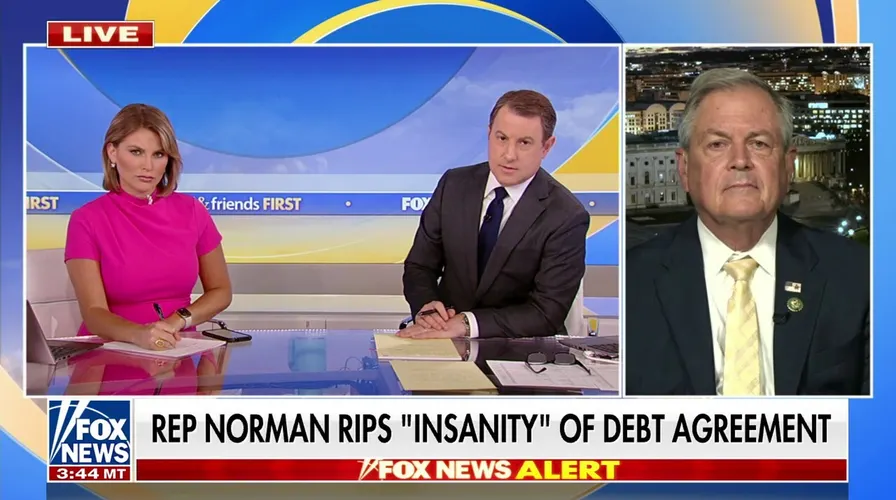In a remarkable turn of events, House Republican leaders are proudly championing the recent deal struck between House Speaker Kevin McCarthy and President Biden as a resounding victory for conservatives across the nation. However, amidst the celebrations, some of the most fervent conservative Republicans in the House are expressing their intent to vote against it.
During a press call on Monday night, House Financial Services Chair Patrick McHenry, a staunch Republican from North Carolina, didn’t mince words when he revealed, “[The White House] wanted new tax policy, they want new tax revenue, they wanted tax increases. They wanted more price fixing, like more price setting, in the private sector for a variety of products, especially pharmaceuticals. Their key policy issues they forced into the conversation are not in this bill.”
But McHenry was quick to highlight the favorable aspects of the deal, stating, “They get an 18-month increase in the debt ceiling. And in return, we reduce spending, we have major changes to the permitting process.” He described the agreement as a “conservative bill that rides atop an 18-month increase in the debt ceiling.”
McHenry worked alongside Rep. Garret Graves, a Republican from Louisiana, to negotiate this deal, which Graves also wholeheartedly supported despite criticisms from the conservative House Freedom Caucus.
Graves confidently asserted, “I’ll just say that I think it’s pretty clear, based on their public statements and where we are right now, the clear victors in this overall negotiation.”
While Republican leaders and many conservatives are celebrating this accomplishment, there are dissenting voices within the party. Reps. Chip Roy of Texas and Ralph Norman of South Carolina have openly expressed their opposition to the deal, casting doubt on its smooth passage through the Rules Committee hearing scheduled for Tuesday.
Norman passionately criticized the deal, proclaiming, “This ‘deal’ is insanity. A $4T debt ceiling increase with virtually no cuts is not what we agreed to. Not gonna vote to bankrupt our country. The American people deserve better.”
Roy, a prominent figure in the Freedom Caucus, revealed that McCarthy made an “explicit” promise during the speaker vote this year that Republican support for a bill had to be unanimous in the Rules Committee before it reached the House floor. He further criticized the debt limit bill, stating, “It’s not a good deal. Some $4 Trillion in debt for – at best – a two-year spending freeze and no serious substantive policy reforms.”
Republican leaders refrained from directly addressing the public dissent within their ranks during the Monday evening call. However, Graves indirectly referred to Roy’s claim, stating, “I’ll just say succinctly that we control the Rules Committee, and we would like our rules to come to the floor with majority Republican votes. And I’ll leave it at that.”
The final deal suspends the debt limit without a cap until Jan. 1, 2025, while also reducing non-defense spending to near fiscal 2022 levels and imposing a growth cap of 1% for the next two years. Additionally, it includes non-mandatory caps for the following four years and rescinds some funding allocated to the Internal Revenue Service and unspent COVID-19 pandemic funds.
Overall, despite the differing opinions within the Republican party, leaders are confident in the achievements of this deal. Rep. French Hill of Arkansas, an ally of McCarthy, expressed his satisfaction, stating, “We’ve effectively delivered and, in fact, overperformed in a number of areas in the topic of limiting spending, saving money directly for taxpayers today, and producing policies that will increase economic growth and improve the workforce.”
While perfection remains elusive, Hill acknowledged that individual conversations would continue with dissatisfied members in an effort to address their concerns and find common ground.
Source Fox News


